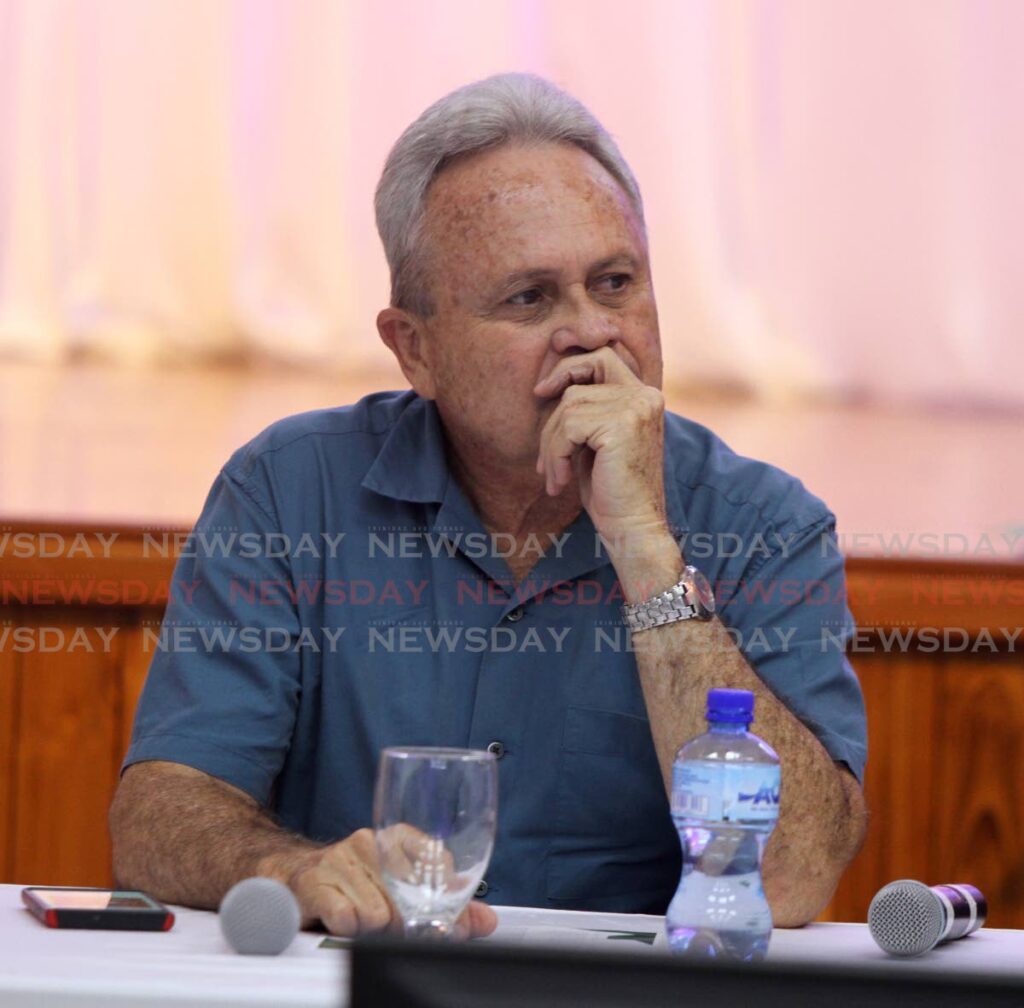Can budget be tough on crime?

CAN initiatives in the 2023/2024 national budget help to reduce crime, mulled several business organisations ahead of Monday's presentation by Finance Minister Colm Imbert.
The hopes come after a week when the country has been stunned by the assassination of a 13-year-old rape victim due to testify against her assailant and by the murder of four children at home in the Heights of Guanapo, Arima.
The Trinidad and Tobago Chamber of Industry and Commerce recently called for donations to the police service and Crime Stoppers to boost the fight against crime.
In its budget recommendations on its website, the chamber proposed hefty tax breaks for donations from individuals and organisations to the police and Crime Stoppers for operational and infrastructural support. It proposed "a tax deduction of 100 per cent for donations up to $1,000,000 for a defined period."
The Greater Tunapuna Chamber of Industry and Commerce (GTCIC) wanted tax breaks towards funding a community collaboration against crime.
“Our membership continues to grapple with crime in the form of robbery, larceny, and the penultimate liability of an out-of-control murder rate.
“The time has come to meaningfully boost community involvement with public-private partnerships.
“Tax incentives should be presented to the private sector to increase this type of activity. This is a model GTCIC has followed and it has yielded positive outcomes in the form of our SOS system currently being piloted in the Tunapuna area."
Urging a holistic approach at the community level, the Tunapuna chamber said, "We firmly believe the police service cannot do it alone.”
Senator Jayanti Lutchmedial, at a UNC pre-budget consultation on Saturday in Marabella, noted that national security receives the largest cut of the budget.
"I shadow law and national security. Crime has taken up the largest portion of the budget for many years. To have five children in our morgues in one week, to me, as a mother, it breaks my heart."
She called for a more efficient management of the various arms of the law-enforcement and judicial apparatus.
"How are we managing the criminal justice system? Because this involves victim management, management of offenders, rehabilitation of offenders, prison system and raising the detection rate. Our detection rate is abysmal.
"In the country, there is an even worse conviction rate, the reason being we are treating and dealing with and investigating and prosecuting crime in 2023 like it's 1983 – not using CCTV, not using DNA."
Lutchmedial lamented that under the current system, people were waiting upwards of six months to get forensic results, so as to identify bodies, and waiting all that time to bury their loved ones.
"These are some of the challenges we experience as a country."
Amidst the calls for incisive tax breaks and spending, Imbert must surely consider his balance sheet.
Amid a clamour for a higher minimum wage and relief for all levels of society – businessman, middle-class and low-paid – lies the reality of last year's budget deficit resulting from production shortfalls and world oil and gas prices below the levels on which Imbert had predicated budget 2022/2023.
Imbert also faces a billion-dollar-plus deficit in the National Insurance scheme, with fewer contributors and more pension claimants raising the spectre of a higher retirement age.
However, the CSO and Central Bank recently gave good news on TT's non-energy sector.
The Central Bank, in its September Monetary Policy Announcement, noted food inflation of only four per cent, compared to 17 per cent in late 2022.
The report declared, “The committee considered that domestically, the buoyancy in private-sector credit, alongside the sustained deceleration in inflation, were helping to foster a steady revival of economic activity without demand pressures at this time.”
The bank noted upticks in non-energy sectors like transportation and storage, wholesale and retail trade, electricity and water, and construction, plus a 7.8 per cent rebound in business credit. Unemployment rose slightly from 4.7 per cent in late 2022 to 4.9 per cent in early 2023.
However, Oropouche West MP Davendranath Tancoo expressed scepticism at a UNC pre-budget consultation at Siparia on Saturday.
"It will be a talk shop of fancy words and PR spins.
"Based on the trend of the last eight budgets, I expect more talk and less action on the critical issues facing our citizens."
Tancoo hoped more resources for police and prison services, including the Praedial Larceny Squad, "so that the population could have a real chance against criminals."
He expected Imbert to claim economic growth but still seek to extract more from the population via the property tax and higher rates for water and electricity.
"I would like to see a removal of all taxes on food, to give people a chance to breathe, and an increase in the value of pensions and social grants."
Tancoo complained that the Government had not secured TT's gas supply but jeopardised the fuel supply to Point Lisas and earnings to fund the local foreign-exchange supply.
"They held out Dragon gas to the population as an absolute solution, the magic pill for this country’s economic collapse..
“They did nothing to grow the economy because they pegged this country’s future on Dragon gas."

Comments
"Can budget be tough on crime?"